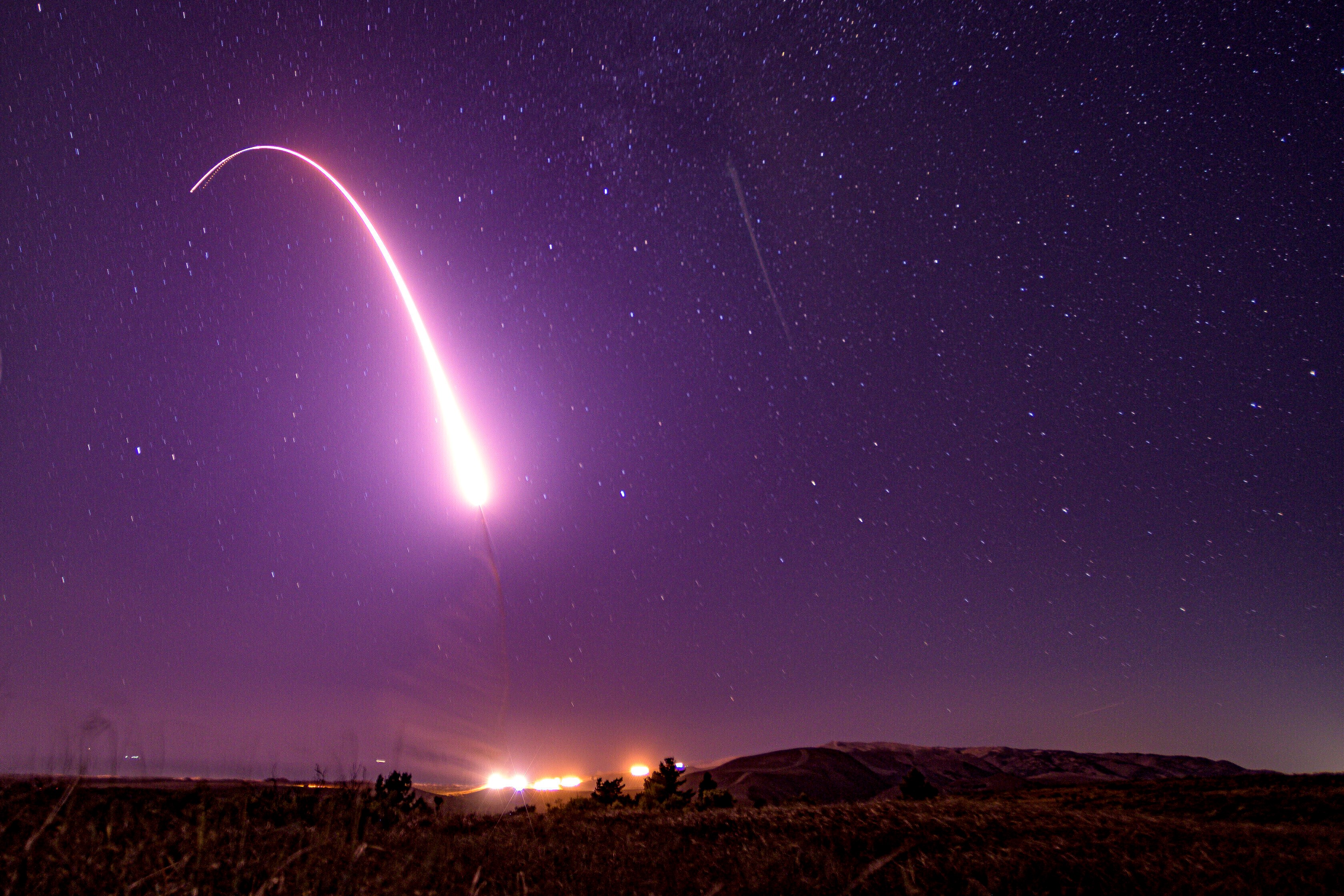No plans to deploy nukes in post-1997 NATO states: US
The United States claims that it does not plan on deploying nuclear weapons in that many more states, as the Nuclear Sharing program is exclusive to certain NATO members.
-

This image taken with a slow shutter speed on Oct. 2, 2019, and provided by the U.S. Air Force shows an unarmed Minuteman 3 intercontinental ballistic missile test launch at Vandenberg Air Force Base (Staff Sgt. J.T. Armstrong/U.S. Air Force via AP)
The United States is not planning on deploying nuclear arms on the territories of NATO member states that became part of the alliance after 1997, US Department of State spokesperson Vedant Patel said on Thursday.
"The United States has no plans to deploy nuclear weapons on NATO member territory that had joined NATO post-1997," he told journalists.
The lack of nuclear weapons in Poland, as per Polish President Andrzej Duda, is a "problem" for Warsaw, opening the door for the United States to deploy nuclear weapons in his country.
Simultaneously, Duda said he believed that Poland could become a partner in the Nuclear Sharing program, under which European NATO countries host and store US nuclear weapons. The NATO member states that have nuclear arms under the program in question are Belgium, Germany, Italy, the Netherlands, and Turkey.
DPRK preparing for nuclear test, drills are no threat: DoD
The United States assesses that the Democratic People's Republic of Korea is making preparations to conduct a nuclear test, Pentagon Press Secretary Brigadier General Pat Ryder said.
"We do assess that North Korea has been making preparations," Ryder said during a press briefing.
The Pentagon official also underlined that the drills being conducted by the US forces in the Korean Peninsula are defensive and do not pose a regional threat.
"Us participating in exercises in the region or engaging in bilateral or trilateral exercises is not something new," he told a press briefing.
"We have a long-standing defense relationship with both South Korea and with Japan," he added. "And these are defensive exercises that are focused on how we would defend ourselves and how we would deter and they are not a threat at all to the region unlike the [DPRK's] provocative activities," he said.
In support of Pyongyang, Russia and China said during a UN Security Council meeting on Wednesday that the DPRK's ballistic missile launches were not random and occurred in response to the United States and its allies conducting military exercises in the region.
The DPRK fired Thursday two ballistic missiles as it pointed out that its recent blitz of tests were necessary countermeasures against joint military drills by the United States and South Korea.
As the United Nations Security Council met to discuss Pyongyang's Tuesday launch of an intermediate-range ballistic missile over Japan, the DPRK blamed Washington for "escalating the military tensions on the Korean peninsula."
The recent launches -- six in less than two weeks -- were "the just counteraction measures of the Korean People's Army on South Korea-US joint drills," Pyongyang's Foreign Ministry justified in a statement Thursday.
Seoul, Tokyo, and Washington have ramped up joint military drills in recent weeks, including large-scale naval manoeuvers and anti-submarine exercises.
Early on Thursday, South Korea's military confirmed it had detected two short-range ballistic missiles launched from the Samsok area in Pyongyang toward the East Sea, also known as the Sea of Japan.
The first missile traveled 350 kilometers (217 miles) at a maximum altitude of around 80 kilometers, according to their analysis, with the second flying 800 kilometers at an altitude of 60 kilometers.
Tokyo also confirmed the launches, with Japanese Defence Minister Yasukazu Hamada telling reporters that it was important not to "overlook the significant improvement of (the DPRK's) missile technology."
Also in light of the US' military drills, this afternoon saw a dozen North Korean jets conducting a firing drill after the DPRK’s launch of two short-range ballistic missiles earlier in the day, according to South Korea’s military source to NK News.
The South Korean military sent what it labeled as an “overwhelming” response with 30 aircraft that included F-15K fighter jets, but there were no specifications regarding their proximity and location to the North Korean formation.
It is worth mentioning that Washington has approximately 28,500 troops stationed in South Korea, escalating the tension in the heated region.

 4 Min Read
4 Min Read










